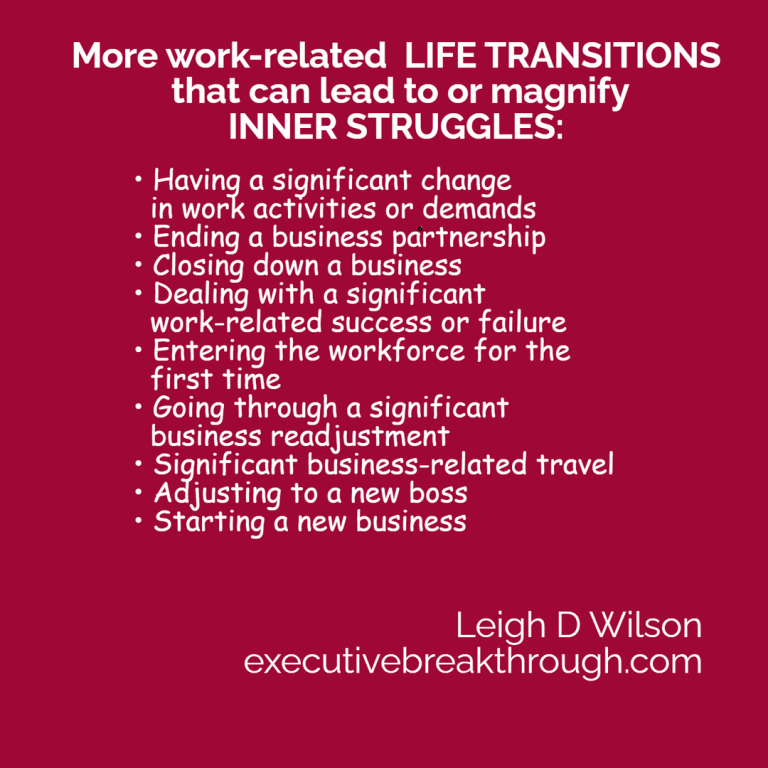Experiencing significant changes at work, such as taking a new job, stepping into a leadership role, or making a complete career change, can be challenging. This difficulty is often compounded by feelings of self-doubt and the emergence of what is known as Imposter Syndrome.
Self-doubt is an internal questioning of your abilities and worthiness, whereas Imposter Syndrome is a pattern where individuals doubt their achievements and fear that others will discover they are not as competent as they appear. Both can make transitions in work life feel more overwhelming than they need to be.
During these transitions, it’s common to question your readiness or ability to take on new responsibilities. This uncertainty can create a sense of inadequacy, even when there’s ample evidence to suggest that you’re entirely capable.
Imposter Syndrome can often be a significant factor during work-related transitions. The fear of being exposed as a ‘fraud’ can be debilitating, leading to stress and anxiety. Despite substantial professional achievements, those suffering from Imposter Syndrome tend to attribute their success to luck, rather than their own competence.
These internal struggles can have a significant impact on your professional growth during times of transition. They may lead to procrastination, lack of motivation, and poor performance, causing these periods to be more stressful than they need to be.
However, it’s essential to understand that these feelings are just that—feelings—and they don’t define your capabilities or worth. You can manage these feelings by acknowledging your vulnerability, seeking support, thinking positively, and celebrating your achievements.
Work transitions are a natural part of professional life and are often opportunities for personal and professional growth. It’s perfectly normal to have doubts and fears during these periods. Acknowledging that these feelings are a common part of the human experience can help make your journey feel less isolating and more manageable.
Remember, your fears and doubts do not define your professional journey. Your courage, resilience, and determination do. Keep these in mind, and you’ll be able to navigate work transitions more confidently.
And, of course, if you are finding that your reactions to life transitions aren’t always serving you well, let’s have a chat about ways to change this unhappy situation.
#selfdoubt #imposter #anxiety #stress #worry #overwhelm #fear #procrastination #selfesteem #selfconfidence #emptiness #loneliness #failure #sadness #guilt #selftalk #burnout










